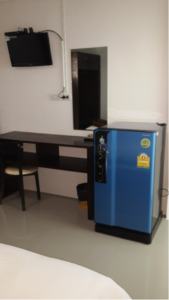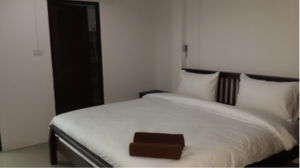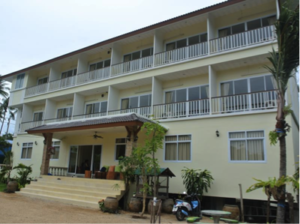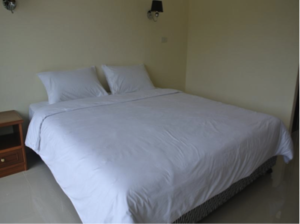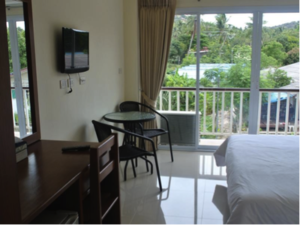Course Structure Course name: 2 WEEKS TO SPEAK – Intensive Thai conversation course Duration: 2 weeks / level; 5 hours / day; 5 days / week; Monday to Friday Teacher…
Here are some of the frequently asked questions (FAQ) about the TEFL course but if you cannot find the answer you are looking for, please do not hesitate to contact us : http://www.mindyourlanguagethailand.com/contact-us/
1. What is the difference between TEFL and TESOL?
The terms basically mean the same, with TEFL more common in the UK, and TESOL more common in America. There is a slight technical difference since TESOL refers to learners whose first language is not English, although they may speak English in their daily lives. TEFL refers to “foreign” students, learning English as a foreign language. These students do not use English regularly and therefore have different usage and comprehension problems.
The course covers both aspects.
2. What qualifications do the instructors have?
Our trainer and co-owner of the school, is highly qualified to teach the course. She left the USA 20 years ago to move to Italy. She not only has a degree in psychology, (great for some pointers on classroom management!) but has a DELTA (Diploma of English Language Training to Adults) as well as a CELTYL (Certificate of English Language Training to Young Learners), so is qualified to teach both adults and children. Prior to moving to Samui, She owned a prestigious language school in Italy for nine years. Her company, trained teachers, placing them in contracts to teach at Italy’s top fashion houses and other businesses. Language Studios also ran classes for children and adults at their own school. Kathryn believes in making classes fun and has some brilliant ideas to share with trainee TEFL teachers.
3. My Grammar skills are not great, can I still take the course?
We understand that it may have been a while since you studied grammar at school. However, as a native speaker, you already know grammar quite well, it’s more the terminology that you may not know. We can send you an easy-to-use grammar workbook before you start the course, so that you can brush up in your own time prior to the course starting. During the course we work through this material to ensure that you are familiar with grammar as well as its terminology before you become a teacher.
4. Do I need knowledge of another language?
No. The course uses the international standard communicative approach to teaching, where English is the only language used in the classroom. These methods are thoroughly explained and practiced during the course. This means that you will be able to use your new TEFL qualification to travel the world, and finance this wanderlust by teaching.
5. Can non-native speakers of English take the course?
Applications are welcomed regardless of first language or nationality. However, as we believe that in order to teach English well, you need to KNOW English well, the only requirements are a proficient level of both spoken and written English and an understanding of the intensive nature of the course. Please be aware that some schools will only employ NATIVE English speakers (NES). We cannot guarantee placements for non-native speakers.
6. Is there an age limit?
We have no official upper age limit, but you must be 19 years of age or older for your application to be considered.
If you are a person of ‘more mature years’, don’t let this put you off applying. If you are receptive to learning, you should have no problems. We have many mature students taking ‘Golden Gap Years’, who are not quite ready to retire yet.
NB: Some employers may have an upper age limit, especially if the job is with younger children, due to the energy level required for this kind of teaching, therefore our job guarantee for NES with degrees has an upper limit of 55 years of age, due to restrictions at some schools.
7. Will my certificate be recognised around the world?
Yes. Upon successful completion of our 4-week TEFL course, you will receive a certificate which is recognised worldwide. The course meets and exceeds the basic international criteria, as we offer 120 hours of classroom time and observed teaching practice. You will also receive a letter of reference from your trainer, as well as a detailed report card.
8. Where can I work with a TEFL certificate?
Work is available almost anywhere in the world where English is not the native language. There are many opportunities within Asia specifically, but not exclusively. Some countries require teachers to have a degree (any) as well as a TEFL qualification. A list can be provided on request.
9. How intensive is the course, will I get time to see the island?
Yes, the course is intensive, and you will need to commit yourself to some independent study and lesson planning time outside of the classroom, but we schedule quite a bit of time within the 4-week TEFL course for planning and preparation. If you balance your workload and make good use of your time in the classroom, you will have weekends to enjoy the sights on beautiful Koh Samui.
10. Is there a Dress Code?
Dress code for class sessions at the training centre is ‘smart-casual’ – no caps or hats, no plunging necklines for ladies, no overly revealing outfits, in the event that we have visitors to the centre. Please refrain from vests and ‘short’ shorts.
Dress code for teaching practices is as follows:-
Men:
Long trousers, button shirt, can be short sleeved, a polo shirt is fine.
All piercings must be removed and tattoos must be covered.
Smart shoes
Ladies:
No cleavage visible.
Skirts or trousers on or below the knee. NOTE: you will need at least one skirt, as one of the schools we teach at insists on skirts.
Shoulders must be covered.
All piercings other than earrings must be removed, and all tattoos must be covered.
Make sure that underwear and midriff do not show when moving about or bending.
NO BAGGY CLOTHING. They want a smart appearance please.
Some schools insist on closed shoes (no toes showing), so bring a pair. Note: It’s difficult to find larger shoes sizes in Thailand!
In general, teachers dress conservatively. You are expected to dress appropriately for your teaching practices, as you will be actively teaching in a real school environment. As a teacher in Thailand you are revered. You are expected to dress and behave appropriately so that you deserve this respect granted to you.
11. What are the living costs?
Plan for enough during the course and at least six weeks after, allowing time to find work and receive your first pay cheque. Accommodation will vary depending on where you are in the country, but you can definitely get something for 6,000 to 10,000 baht per month, often much less in the countryside. Food depends on whether you are happy to eat local or not. On Samui, you can get a decent meal in a small local restaurant for 60-80 baht, and much less in the countryside. A scooter costs about 4,000 baht per month to rent. See my blog post here on eating cheaply on the island: http://www.travelfish.org/blogs/thailand/2012/09/05/eating-on-ko-samui-for-150-baht-per-day/
12. What accommodation is available?
We have sourced great accommodation establishments for our students. The rate is from the day before the course until the day after the course. Should you be arriving earlier, you’ll need to stay elsewhere first as other trainees will need to check out first.
Accommodation choices
T Phak Phink. This is a brand new hotel, only 50m from the beach and about a 300m walk to the training centre.The rooms have King size beds, air-con, free wifi, hot water showers, TV, fridges and small balconies. The rate is 10,000 baht for the room for the course period – one day before to one day after. Cleaning once a week is included in this rate.
Choeng Mon Residence is also a fairly new hotel. This one is about 200m from the beach and about 200m from the training centre. Here there is the option (subject to availability) of twin rooms or queen beds.
It has air-con, free wifi, hot water showers, TV, fridges and kettles, and small balconies. The rate is 10,000 baht for the room for the course period – one day before to one day after. Cleaning once a week is included in this rate.
13. What do I need to bring?
- An open mind and sense of humour!
- Your ORIGINAL degree and transcripts (for processing your visa and work permit once you find work. The agencies have informed us that they now require originals to process the application. Have a few copies certified back home before coming, as it is easier than doing it here in Thailand.
- Your prepared CV/resumé, and we’ll assist you in tweaking it for the local job market.
- A police clearance certificate/criminal background check is now required to apply for a work permit as a teacher. Please ensure you get one before coming to Thailand as it’s easier to get this in your home country than while here.
- We provide all stationery, but if you want to do lesson planning after school hours (and after the course), a laptop/notebook will make life easier for you. We do have computers in class, but they need to be shared.
- Clothing for teaching as above.
- Everything else as per normal travel requirements and personal effects.
14. Reminders
- Check you have enough pages and time in your passport, an absolute minimum of 6 months is required.
- Be sure to inform your bank you are travelling so they don’t block your card while abroad, and you may want to increase your daily limit. It’s a good idea to give a family member power of attorney on your bank account before travelling, so if you need to access an account if there are problems, they can do so for you.
- Email copies of important documents to yourself so you have them handy in case of misplacement.


